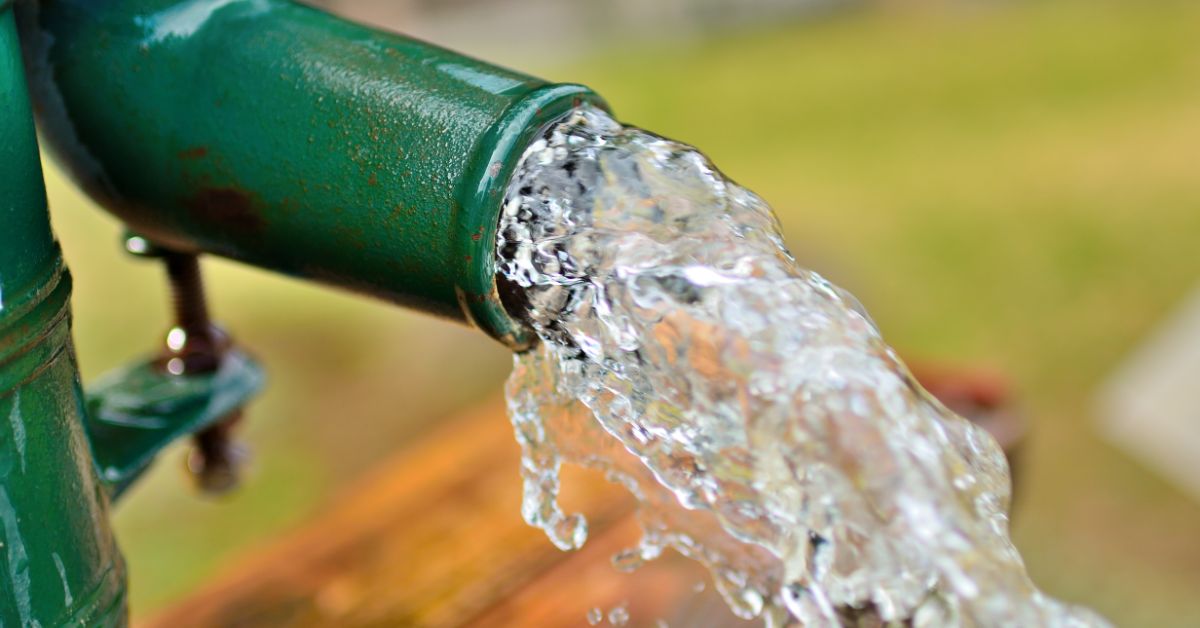Introduction
Imagine the joy of having your own well, providing a seemingly endless supply of fresh, clean water. But what happens when your well water turns salty? This unexpected change can be alarming, not just because of the unpalatable taste but also due to potential health concerns. This comprehensive article delves into the causes of salty well water and offers effective solutions to restore its quality.
![How to Get Rid of Sand in Well Water [Best Methods]](https://empirepumpinc.com/wp-content/uploads/2016/08/get-rid-of-sand-in-well-water-1024x683.jpg)
Image: empirepumpinc.com
Understanding Salty Well Water
Salty well water is caused by high concentrations of dissolved salts, particularly sodium chloride (NaCl). This excessive saltiness can originate from various sources, including:
- Geologic Formations: Salty water aquifers can form when groundwater comes into contact with salt deposits or salt-bearing rocks deep underground.
- Saltwater Intrusion: Coastal wells can become salty if saltwater from the ocean seeps into the aquifer during periods of high tide or storm surges.
- Road Salts: Winter road salts used to melt ice and snow can infiltrate the groundwater, increasing salinity levels.
- Agricultural Practices: Certain farming techniques like irrigation with saline water or the use of fertilizers containing salts can contaminate groundwater.
Identifying Salty Well Water
Recognizing salty well water is crucial for early intervention. Common signs include:
- Noticeably salty taste
- White or cloudy appearance
- Metallic or bitter aftertaste
- Scale buildup on pipes or fixtures
- Deterioration of appliances and fixtures
- High Blood Pressure: Sodium in well water can contribute to elevated blood pressure, increasing the risk of heart disease and stroke.
- Kidney Problems: Long-term exposure to high salt levels can strain the kidneys, leading to potential kidney damage.
- Irritable Bowel Syndrome: High concentrations of sodium can aggravate IBS symptoms, including abdominal pain and diarrhea.
- Proper Well Construction: Ensure your well is properly sealed and constructed to prevent surface runoff or other contaminants from entering the aquifer.
- Saltwater Intrusion Barriers: In coastal areas, construct barriers like slanted wells or cutoff walls to protect aquifers from saltwater intrusion.
- Water Conservation: By conserving water, you can help maintain groundwater levels and prevent saltwater from infiltrating the aquifer.
Health Concerns Associated with Salty Well Water
While salty well water is generally not hazardous in small amounts, excessive consumption can pose health risks:

Image: brizfeel.com
Solutions for Salty Well Water
Addressing salty well water is essential for both health and aesthetic reasons. Several effective solutions are available:
1. Water Softener
A water softener removes excess minerals and salts from well water, restoring its palatability. It involves passing the well water through a resin bed that attracts and holds onto impurities, exchanging them for sodium or potassium ions.
2. Reverse Osmosis System
Reverse osmosis utilizes a semipermeable membrane that selectively filters out impurities, including dissolved salts. It is highly effective in reducing salinity levels, producing water that is nearly pure.
3. Distillation
Distillation is a process that boils water and condenses the steam. The resulting condensate is purified water with reduced salt content. Distillation systems are often used in laboratory or industrial settings.
4. Activated Carbon Filtration
Activated carbon filters can remove some types of dissolved salts and organic impurities from well water. However, they may not be as effective as water softeners or reverse osmosis systems in reducing high salinity.
Prevention and Expert Advice
Preventing salty well water is ideal, and there are a few preventive measures to consider:
Consulting an Expert: If you suspect salty well water, don’t hesitate to consult a water treatment specialist or a hydrologist. They can conduct a comprehensive water analysis to determine the extent of the problem and recommend the most suitable solution for your specific situation.
Frequently Asked Questions (FAQs)
Q: Can I drink salty well water?
A: Consuming small amounts of salty well water is generally not harmful. However, if you have concerns about high blood pressure, kidney issues, or other health conditions, it’s best to consult a healthcare professional.
Q: Can I use a water filter pitcher to remove salt from well water?
A: Standard water filter pitchers are not effective in removing high levels of dissolved salts. Consider investing in a water softening system or reverse osmosis system for effective salt removal.
Q: How often should I test my well water for salinity?
A: It is recommended to test your well water for salinity annually, especially if you live in areas prone to saltwater intrusion or other sources of contamination.
How To Fix Salty Well Water
Conclusion
Salty well water can be a common problem with varying degrees of severity. Understanding the causes, identifying the signs, and knowing the potential health risks is crucial. Remember, you have options. You can restore the quality of your well water through practical solutions like water softeners or other water treatment systems. By following these steps, you can enjoy clean, healthy water from your well for years to come.
Are you experiencing salty well water? Is it a concern or something you would like to fix?